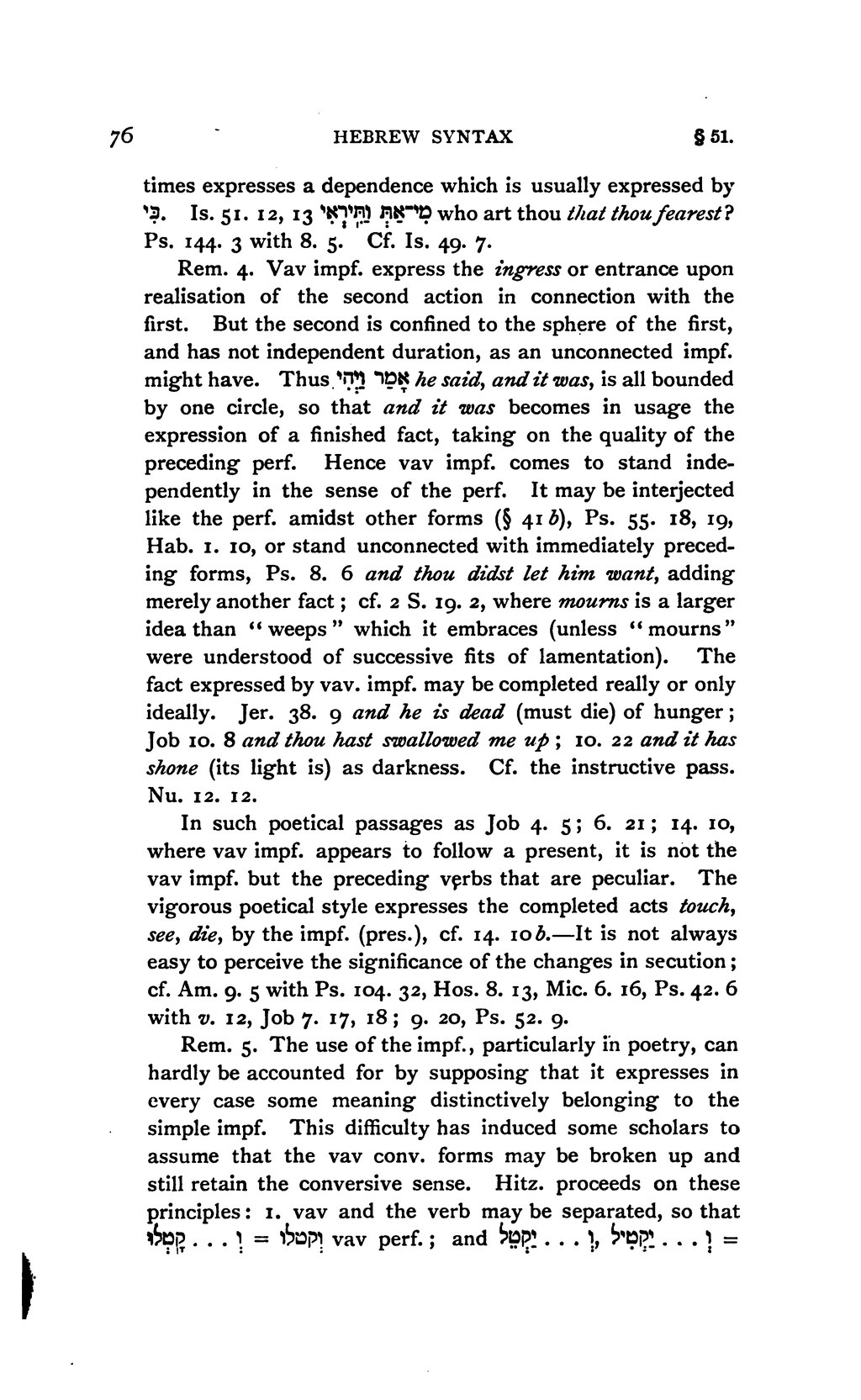times expresses a dependence which is usually expressed by כִּי. Is. 51:12, 13 מִי־אַתְּ וַתִּֽירְאִי who art thou that thou fearest? Ps. 144:3 with 8:5. Cf. Is. 49:7.
Rem. 4. Vav impf. express the ingress or entrance upon realisation of the second action in connection with the first. But the second is confined to the sphere of the first, and has not independent duration, as an unconnected impf. might have. Thus אָמַר וַיְהִי he said, and it was, is all bounded by one circle, so that and it was becomes in usage the expression of a finished fact, taking on the quality of the preceding perf. Hence vav impf. comes to stand independently in the sense of the perf. It may be interjected like the perf. amidst other forms (§ 41 b) Ps. 55:18, 19, Hab. 1:10, or stand unconnected with immediately preceding forms, Ps. 8:6 and thou didst let him want, adding merely another fact; cf. 2 S. 19:2, where mourns is a larger idea than “weeps” which it embraces (unless “mourns” were understood of successive fits of lamentation). The fact expressed by vav. impf. may be completed really or only ideally. Jer. 38:9 and he is dead (must die) of hunger; Job 10:8 and thou hast swallowed me up; 10:22 and it has shone (its light is) as darkness. Cf. the instructive pass. Nu. 12:12.
In such poetical passages as Job 4:5; 6:21; 14:10, where vav impf. appears to follow a present, it is not the vav impf. but the preceding verbs that are peculiar. The vigorous poetical style expresses the completed acts touch, see, die, by the impf. (pres.), cf. 14:10 b. — It is not always easy to perceive the significance of the changes in secution; cf. Am. 9:5 with Ps. 104:32, Hos. 8:13, Mic. 6:16, Ps. 42:6 with v. 12, Job 7:17, 18; 9:20, Ps. 52:9.
Rem. 5. The use of the impf., particularly in poetry, can hardly be accounted for by supposing that it expresses in every case some meaning distinctively belonging to the simple impf. This difficulty has induced some scholars to assume that the vav conv. forms may be broken up and still retain the conversive sense. Hitz. proceeds on these principles: 1. vav and the verb may be separated, so that וְ ... קָטְלוּ = וְקטלו vav perf.; and וְ ... יַקְטֵל, וְ ... יַקְטִיל =
